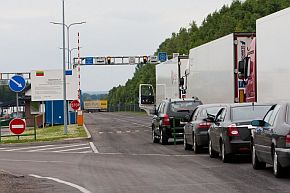Agriculture, Baltic States – CIS, Economics, Legislation, Lithuania, Markets and Companies, Transport
International Internet Magazine. Baltic States news & analytics
Wednesday, 24.04.2024, 18:56
Russian blockade affects Lithuanian agricultural producers and carriers
 Print version
Print version |
|---|
Mass asset distraints have begun as they cannot settle with creditors. In September, as many as 892 companies experienced asset distraints for a total of LTL 213 million (EUR 61.7 million), or nearly three times more than in August. Agriculture and transport companies are suffering from distraints most of all.
"As the data of the Register of Property Seizure Acts reveals, in September, property seizures were applied to 41 agriculture companies, 22 of which are engaged in crop production and stock raising, the amount of seized property stands at LTL 1.6 million (EUR 464,000). In September of 2013, the whole agriculture sector, which also includes forestry, logging and fishing, saw only 21 property seizures," Viktorija Puikute, analyst at Creditinfo Lietuva UAB, compares.
The carriers' situation has been deteriorating as well. Compared to August, the transport sector in September experienced by 43 property seizures more. The amounts have grown from LTL 3.6 million (EUR 1 million) to LTL 11.6 million (EUR 3.3 million).
"One could say that these are consequences of problems with Russia," said the analyst. "It is possible that creditors are worried about the situation getting worse later, when it would be even more difficult to recover the debts". Chairman of the Chamber of Agriculture of Lithuania Andriejus Stancikas says that agricultural producers have encountered financial difficulties not only because of Russia's embargo but also due to falling purchasing prices of their produce, which in August were even lower than in 2010, the worst year of the economic crisis. "For example, purchasing price of milk this year has dropped by half," Stancikas said to the daily Vakaro Zinios.








 «The Baltic Course» Is Sold and Stays in Business!
«The Baltic Course» Is Sold and Stays in Business!

